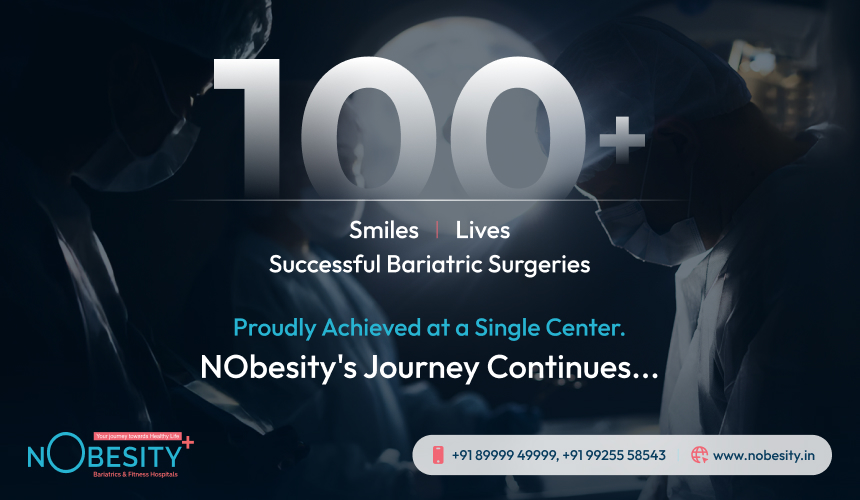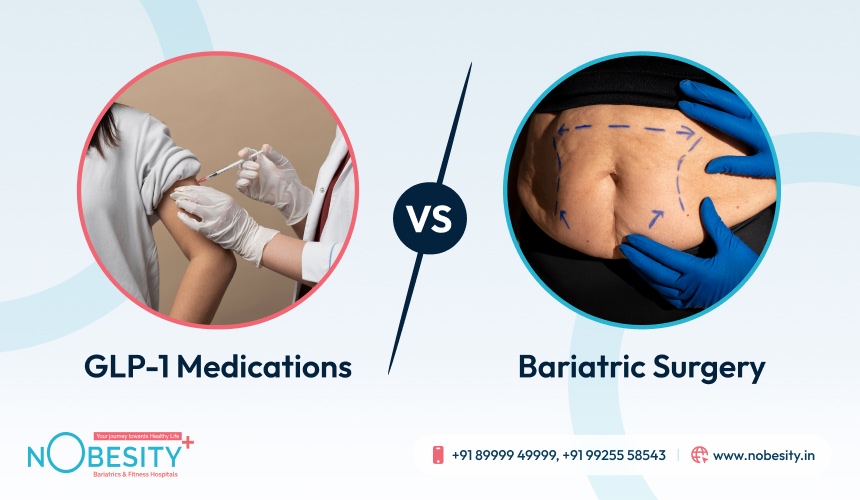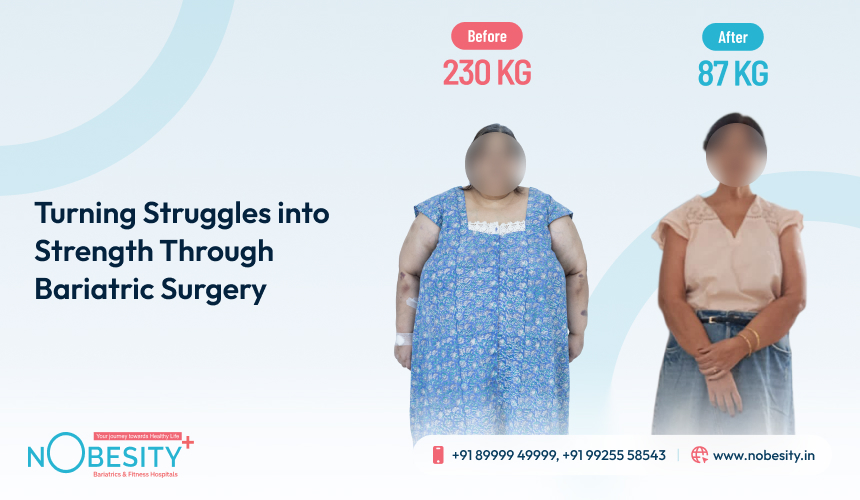
Obesity is more than just a number on the scale; it’s a serious health issue that affects nearly every part of your life, especially when it comes to sleep. One of the most common comorbidities we see in patients with obesity is sleep apnea.
With over half of the population being overweight, and one in four being severely obese (carrying 100 pounds or more of excess weight), sleep apnea is becoming increasingly prevalent. This condition, where breathing is repeatedly interrupted during sleep, can lead to serious health problems, including heart disease and high blood pressure.
Our expertise has shown that obesity is one of the significant risk factors for developing sleep apnea. The excess weight puts pressure on the airway, disrupting your breathing at night and leading to those dangerous pauses in sleep.
So, can bariatric surgery help with both obesity and sleep apnea? The answer is yes. In our experience, weight-loss surgery not only helps with shedding excess weight but can also significantly improve—or even cure—sleep apnea in many cases.
Let’s dive into what sleep apnea is, what causes it, and how our bariatric surgeons can use weight-loss surgery to treat it.
What Causes Sleep Apnea and How Does It Affect You?
Obstructive Sleep Apnea (OSA) is a serious condition that we often see, where the soft tissues around the throat collapse during sleep, blocking the airway and causing breathing pauses—known as apnea. For those of us who are obese, the risk of OSA increases because there’s more tissue around the neck and throat, which makes it harder for the diaphragm and chest muscles to keep the airway open.
When the airway gets blocked, oxygen levels drop, which can affect blood pressure and overall organ health. After the blockage clears, we often find ourselves gasping or waking up with a jolt, which disrupts our sleep. This poor sleep quality can lead to health complications, including high blood pressure, heart problems, and in severe cases, strokes or heart attacks.
Can bariatric surgery help with sleep apnea? Yes, bariatric surgery has proven to be effective in treating sleep apnea. By helping with weight loss, we reduce the pressure around the airway, often leading to improved sleep quality. Our bariatric surgeons have seen firsthand how bariatric surgery for sleep apnea can be life-changing, offering a long-term solution to both obesity and OSA.
Bariatric surgery can help in this situation. Finding obesity-related comorbidity includes being diagnosed with sleep apnea. If a person has a high BMI (40 or above) or a BMI of 35 with one or more comorbidities, such as sleep apnea, health insurance may fund bariatric surgery.
What Are the Different Types of Sleep Apnea, and How Can You Know If You Have One?
Sleep apnea may be classified into three categories. Obstructive Sleep Apnea (OSA), Central Sleep Apnea (CSA), and Mixed Sleep Apnea are the three types of sleep apnea (MSA). OSA is the most prevalent type of sleep apnea, in which your airway is blocked, causing you to stop breathing while sleeping. Weight increase, smoking, drinking alcohol, and sleeping in an uncomfortable posture can all contribute to OSA.
During sleep, central sleep apnea causes the brain to stop delivering signals that control breathing. This is a very uncommon condition. Parkinson’s disease, heart failure, renal failure, and stroke are the most common causes.
OSA and CSA are combined in mixed sleep apnea. Seeing a sleep specialist is the best approach to determine which type of apnea you have.
A polysomnogram, a device that detects rapid eye movement, heart rate, and respiration while you’re sleeping, can be used by a sleep expert to conduct an overnight test. The exam may be used to identify sleep apnea as well as to measure your degree of sleep fitness.
Is Weight Loss Surgery Effective in Treating Sleep Apnea?
Isn’t it reasonable to assume that since sleep apnea is weight-related, weight loss surgery can completely cure it? Bariatric surgery, such as gastric bypass and gastric sleeve, can help individuals lose up to 80% of excess weight, which can significantly improve or even cure sleep apnea.
Research shows that 78% of people seeking bariatric surgery for sleep apnea have obstructive sleep apnea (OSA). Along with OSA, many of these individuals also suffer from comorbidities like hypertension and type 2 diabetes.
OSA often goes undiagnosed, even in individuals of normal weight. In the U.S., up to 20 million people are affected by sleep apnea, but experts estimate that up to 85% of cases remain unrecognized. At our practice, we’ve seen how bariatric surgery can be an effective solution, improving sleep quality and overall health by addressing both obesity and sleep apnea.
Is It Possible To Treat Sleep Apnea With A Gastric Sleeve Or A Gastric Bypass?
Weight reduction surgery can begin when an overnight sleep study confirms that you have sleep apnea. The good news is that bariatric operations such as gastric sleeve and gastric bypass can prevent many of the long-term issues that we find in patients who have their sleep interrupted regularly. This implies that if you obtain therapy for both obesity and sleep apnea, you may be able to prevent diabetes, congestive heart failure, or a full-blown heart attack.
Undergoing weight reduction surgery can leave you feeling more prepared for your day, both by helping you shed excess weight and by addressing sleep apnea. Whether you’re a pilot, a diver on a massive rig, or a healthcare professional like a physician or nurse, the benefits are clear. You’ll no longer be at risk of falling asleep at the wheel or losing focus at work.
Eliminating sleep apnea from your life through bariatric surgery for sleep apnea can result in better sleep quality, which translates to improved performance in your professional life. Whatever your career, the impact of a good night’s sleep can help you stay focused and perform at your best.
Is a CPAP Machine Still Necessary After Bariatric Surgery?
A CPAP machine is one of the most common methods for managing sleep apnea. It works by providing continuous positive airway pressure (CPAP). When you’re preparing to sleep, you wear a mask that covers your nose and mouth, and the machine blows clean air through a tube into your airway, helping you breathe more easily throughout the night. This process leads to a more restful, peaceful sleep.
We find that the CPAP machine is quiet enough not to disrupt your sleep, and its settings are adjustable, allowing you to fine-tune the air pressure to a level that helps you sleep better.
However, while CPAP is effective at managing sleep apnea, it doesn’t cure it. On the other hand, bariatric surgery offers a long-term solution. Bariatric surgery for sleep apnea can potentially cure the condition by addressing the root cause—obesity. Unlike CPAP, which only manages symptoms, weight loss surgery can provide lasting relief and improve your quality of life.
Which Type of Bariatric Surgery is Best for Sleep Apnea?
Obesity and sleep apnea are treated with two frequent operations advocated by bariatric surgeons (along with other comorbidities like type 2 diabetes and hypertension).
Both the Roux-en-Y gastric bypass and the laparoscopic sleeve gastrectomy (also known as a gastric sleeve) involve modifications to the stomach. Gastric bypass surgery differs in that it reroutes the digestive tract. These treatments are safe, require approximately an hour, and are performed laparoscopically, making them minimally invasive procedures.
When our bariatric surgeon performs the procedure using a laparoscopic camera and other instruments, several key benefits are achieved. We use less anesthesia, make fewer and smaller incisions, and as a result, you experience a shorter recovery time, less scarring, and quicker healing.
Gastric Bypass Using Laparoscopy (Roux-en-Y)
At NObesity, we perform bariatric surgery using small incisions, typically less than an inch. Laparoscopic instruments are inserted through these incisions and controlled by our skilled bariatric surgeon, who uses a monitor for precision. Unlike traditional surgery, there is no large incision, leading to a quicker recovery, less scarring, and a reduced risk. Bariatric surgery for sleep apnea is a safe and effective solution, and weight loss surgery can even cure sleep apnea in many cases, improving overall health.
The Gastric Bypass Surgery
We perform bariatric surgery through a gastric bypass procedure, where we remove up to 80% of the stomach tissue. The remaining tissue is reshaped into a pouch, limiting the amount of food that can be consumed. We then reroute the upper stomach to the small intestine, bypassing the lower stomach for regulated digestion. This procedure not only helps you eat less but also triggers hormonal changes, making you feel less hungry and satisfied sooner.
Gastric bypass surgery can help you lose 60% to 80% of your excess weight. Additionally, bariatric surgery has proven effective in treating sleep apnea. By addressing the root cause—excess weight—weight loss surgery can potentially cure sleep apnea, improving both sleep quality and overall health.
Sleeve Gastrectomy
Laparoscopic Sleeve Gastrectomy (LSG) removes 80% of your stomach, creating a small pouch that limits food intake. This bariatric surgery is effective for significant weight loss and is often the first step for patients with extreme obesity or related health issues like heart and lung problems.
Once sufficient weight loss is achieved, we can convert the gastric sleeve to a gastric bypass for further weight loss if needed. While the gastric band (Lap-Band) is an option, it’s less reliable due to complications like slippage, making the gastric sleeve and the gastric bypass the preferred choices.
Gastric sleeve surgery is a low-risk procedure that offers a quicker recovery time than gastric bypass and provides long-term weight loss benefits. It’s also an effective treatment for sleep apnea, as bariatric surgery can reduce the fatty tissue around the airway, improving breathing and sleep quality.
How Long Will It Take for Gastric Surgery to Treat Sleep Apnea?
Weight loss surgery is an exciting step, as it helps you imagine the weight you’ll lose. Bariatric surgery works by reducing your food intake and curbing your hunger, but it’s not a cure-all. To achieve lasting weight loss, you’ll need to make healthy food choices and exercise regularly. If you follow your bariatric surgeon’s recommendations, you can expect to lose 50 to 80% of your excess weight within the first two years.
As you lose weight, the fatty tissue around your throat will shrink, helping to prevent airway collapse that causes your sleep apnea. By shedding excess weight, you’ll breathe easier and sleep better. Research suggests that weight loss can improve sleep quality, a factor that plays a significant role in overall health.
By choosing bariatric surgery for sleep apnea, you’re not just losing weight—you’re improving your health and quality of life.
Once sufficient weight loss is achieved, your bariatric surgeon may convert a gastric sleeve to a gastric bypass for additional weight loss if necessary.
Will Weight Loss Surgery Be Covered by Insurance?
Health insurance is designed to cover life-saving treatments and medical procedures that improve our overall quality of life. Bariatric surgery is both a life-saving procedure and one that can enhance our lives in many exciting ways.
If we have a correct diagnosis for both sleep apnea and obesity, there’s a good chance our insurance will cover some or all of the cost of the surgery. Of course, the experience will vary depending on the insurance provider and the type of health coverage we have.
Meet the winning best bariatric surgeon in Ahmedabad. Book your complimentary appointment with Dr. Manish Khaitan at NObesity today to address all your questions about pre- and post-surgery care.
Conclusion
Bariatric surgery offers more than just weight loss—it provides a transformative solution for sleep apnea. By helping you shed excess weight, bariatric surgery directly addresses the root cause of sleep apnea, reducing pressure on the airway and allowing you to breathe more easily during sleep. This results in better sleep quality, improved energy levels, and a significantly reduced risk of related health conditions such as heart disease, hypertension, and stroke.
At NObesity, we understand the profound impact sleep apnea can have on your quality of life. Our experienced bariatric surgeons are dedicated to helping you not only achieve your weight loss goals but also improve your overall health and well-being. Whether you choose a gastric sleeve or a gastric bypass, we ensure personalized care throughout your journey. By opting for bariatric surgery for sleep apnea, you’re investing in a healthier, happier future.








